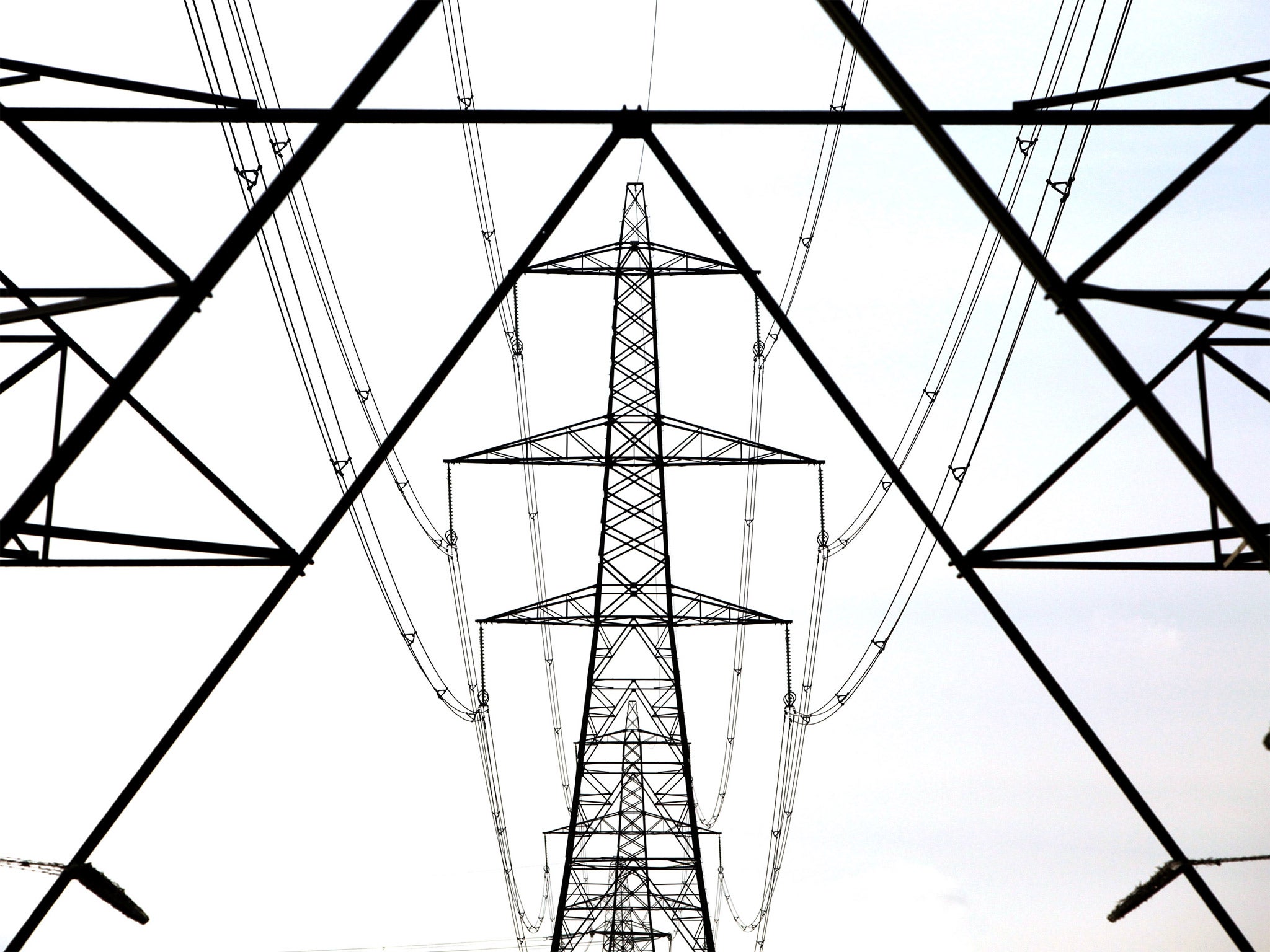National Grid forced into emergency measures to protect Britain from winter blackouts
Incidents at seven plants leave UK teetering on the edge of its power capacity

Your support helps us to tell the story
From reproductive rights to climate change to Big Tech, The Independent is on the ground when the story is developing. Whether it's investigating the financials of Elon Musk's pro-Trump PAC or producing our latest documentary, 'The A Word', which shines a light on the American women fighting for reproductive rights, we know how important it is to parse out the facts from the messaging.
At such a critical moment in US history, we need reporters on the ground. Your donation allows us to keep sending journalists to speak to both sides of the story.
The Independent is trusted by Americans across the entire political spectrum. And unlike many other quality news outlets, we choose not to lock Americans out of our reporting and analysis with paywalls. We believe quality journalism should be available to everyone, paid for by those who can afford it.
Your support makes all the difference.The National Grid has been forced to take emergency measures to shore up energy supplies after a spate of accidents at power stations left spare capacity at its lowest level in seven years.
The buffer between the peak electricity demand forecast this winter and expected supply has fallen to just 4.1 per cent, compared to 17 per cent three years ago, raising concerns that Britain faces a blackout.
But National Grid insisted its action to safeguard supplies had almost certainly averted the chances of a blackout, which it says now stand at one in 31 – the same level as it did going into last winter.
The measures will add about £1 to the average annual family energy bill. They include contracts allowing National Grid to restrict supplies to businesses if supplies get too tight, while it is close to finalising agreements from three power generators to keep open stations that would otherwise be closed or mothballed.
These agreements are with ScottishPower’s Rye House gas plant, RWE Npower’s Littlebrook oil station and SSE’s Peterhead gas generator. They will boost the buffer between expected peak demand and supply to 6.1 per cent.
“The electricity margin has decreased compared to recent years, but the outlook remains manageable and well within the reliability standard set by the government,” said Cordi O’Hara, director of market operation at National Grid.
Although the buffer is low, it was much worse in the winter of 2005/6 when spare capacity was just 1.5 per cent, the operator added.
However, while electricity supplies look likely to meet demand at the moment, another power station accident could force Britain into a brownout – where the voltage is turned down - or even a blackout, analysts have warned.
This is because a series of fires and other problems at power plants has left five of them out of action in recent months – taking about seven per cent of generating capacity off the system.
The accidents include fires at Didcot power station near Oxford, Ferrybridge in West Yorkshire and Ironbridge in Central England. Meanwhile, two EDF nuclear plants in Lancashire are offline after inspections found cracks in boiler units.
If supplies get too tight, National Grid will begin by calling on businesses to turn off their electricity at prearranged times. If that is insufficient, the operator will then look to turn the voltage down – a practice that generally enables households to function normally but can wreak havoc with certain equipment such as clocks and television set top boxes.
A last resort would see a blackout, during which the electricity is turned off for short periods of time, region by region, to spread the pain.
Although the grid has been hit by a series of unexpected events, the extent of the strain this has put on supplies underlines the challenges the country faces in keeping the lights on, since a fifth of generating capacity is due to be lost in coming years, when ageing coal plants and nuclear reactors are retired. In some cases the closures are to comply with EU environmental regulations and in others because they have they have reached the end of their lives.
National Grid also warned yesterday that UK gas prices will soar if Vladimir Putin limits gas exports from Russia this winter. Any disruption to Russian exports to Europe is likely to have the knock-on effect of forcing Britain to pay “significantly higher” prices to import more liquefied natural gas by ship from elsewhere in the world, a spokesman said.
Subscribe to Independent Premium to bookmark this article
Want to bookmark your favourite articles and stories to read or reference later? Start your Independent Premium subscription today.
Join our commenting forum
Join thought-provoking conversations, follow other Independent readers and see their replies
Comments